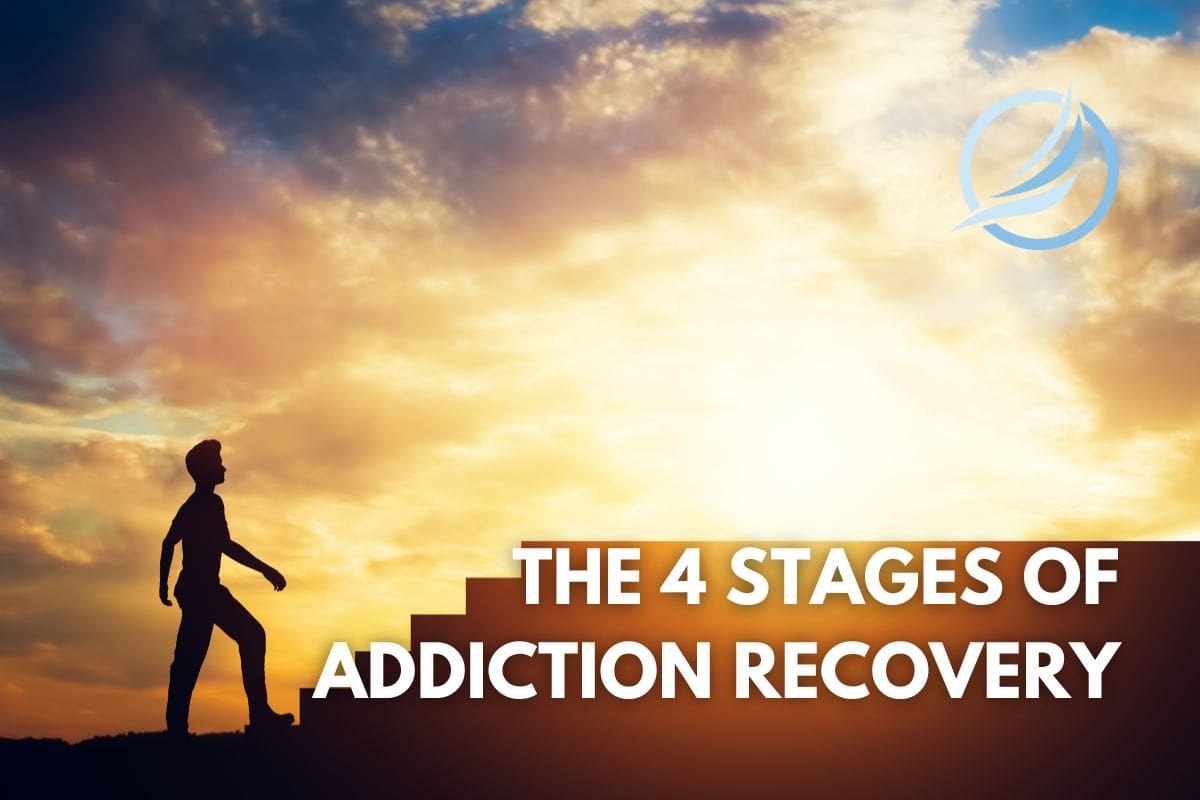The addiction recovery process is not a one-size-fits-all journey; it varies from person to person. However, recognizing the common stages of recovery can provide a roadmap that helps you and your loved ones prepare for the challenges and triumphs ahead.
Addiction recovery is not just about quitting a substance; it’s about rebuilding a life filled with health, happiness, and purpose. By understanding the stages of recovery, individuals can better navigate their path to sobriety and long-term wellness.
Stage 1: Treatment Initiation
The first stage of addiction recovery begins with the crucial step of treatment initiation. This stage is marked by the individual recognizing the need for help and deciding to seek treatment. Often, this realization comes after hitting rock bottom or experiencing a significant life event that underscores the need for change.
- Recognizing the Need for Help: This moment of clarity can be a powerful catalyst for change. It often involves acknowledging the impact of addiction on one’s life and the lives of loved ones.
- Deciding to Seek Treatment: Choosing to enter a treatment program is a courageous decision. It involves researching options, consulting with healthcare providers, and committing to the process.
- Initial Steps in the Treatment Process: Early steps often include detoxification to manage withdrawal symptoms, comprehensive assessments to tailor the treatment plan, and developing an initial support system.
- Emotional and Psychological Challenges: This stage can be emotionally intense, with feelings of fear, shame, and uncertainty. It’s essential to address these emotions with the help of professionals who can provide support and reassurance.
Stage 2: Early Abstinence
Transitioning to early abstinence is a critical phase where the individual starts to live a substance-free life. This stage focuses on coping with withdrawal symptoms, managing cravings, and laying the foundation for long-term recovery.
- Coping with Withdrawal Symptoms and Cravings: Withdrawal can be physically and mentally challenging. Medical supervision and support are vital in managing these symptoms effectively.
- Developing Healthy Coping Mechanisms: Learning new ways to handle stress and triggers is crucial. This may include therapy, mindfulness practices, and developing hobbies that promote well-being.
- Establishing a Support Network: It is essential to build a network of supportive friends, family members, and peers in recovery. Support groups and therapy can provide a sense of community and accountability.
Stage 3: Maintaining Abstinence
Maintaining abstinence involves long-term strategies to stay sober and continue building a healthy, fulfilling life. This stage is about sustaining the progress made and preventing relapse.
- Long-Term Strategies for Staying Sober: Continued participation in therapy, support groups, and other recovery activities helps reinforce sobriety.
- Managing Triggers and High-Risk Situations: Identifying and avoiding triggers is critical. When unavoidable, having strategies to cope with high-risk situations can prevent relapse.
- Continuing Therapy and Support Group Involvement: Ongoing therapy and group support provide continuous reinforcement and opportunities to address new challenges.
- Building a Balanced and Fulfilling Life: Establishing routines, pursuing interests, and setting personal goals contribute to a well-rounded and satisfying life in recovery.
Stage 4: Advanced Recovery
Advanced recovery is when individuals achieve long-term sobriety and focus on personal growth, self-discovery, and helping others.
- Achieving Long-Term Sobriety: At this stage, sobriety becomes a stable and integral part of life. The focus shifts from merely avoiding relapse to thriving in sobriety.
- Personal Growth and Self-Discovery: Recovery provides an opportunity for profound personal growth. Many individuals discover new interests, strengths, and passions.
- Setting and Achieving Life Goals: This stage involves setting and pursuing meaningful life goals, whether in career, relationships, or personal development.
- Giving Back and Helping Others in Recovery: Many find fulfillment in helping others on their recovery journey, whether through mentoring, volunteering, or simply sharing their experiences.
Common Challenges and How to Overcome Them
Recovery is a continuous journey with its ups and downs. Understanding common challenges and strategies to overcome them can be incredibly helpful.
- Relapse Prevention and Dealing with Setbacks: Relapse is a common part of recovery but can be managed with the right strategies. Recognizing early signs of relapse, having a plan, and seeking support immediately can mitigate setbacks.
- Handling Stress and Emotional Fluctuations: Stress and emotional highs and lows are part of life. Developing healthy coping mechanisms, such as mindfulness, exercise, and therapy, can help manage these fluctuations.
- Maintaining Motivation and Focus: Staying motivated can be challenging, especially when progress feels slow. Setting small, achievable goals and celebrating successes can keep motivation high.
Understanding the stages of addiction recovery can empower you or your loved one to navigate the journey with confidence and hope. Each stage presents its own challenges and opportunities, but long-term recovery is achievable with the proper support and dedication.
Understanding these stages can provide clarity, direction, and hope, whether you’re at the beginning of your journey or supporting someone else.


































